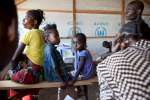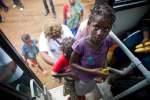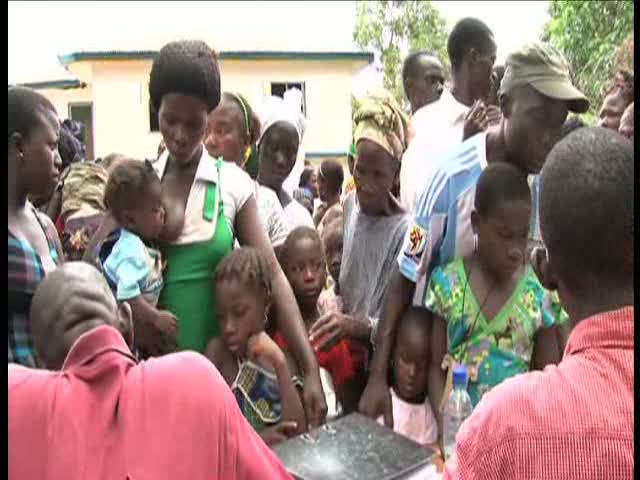- Text size
 |
|  |
|  |
| 
- Français
UNHCR welcomes Brazilian residency for Angolan and Liberian refugees
News Stories, 9 November 2012

BRASILIA, Brazil, November 9 (UNHCR) – The UN refugee agency on Friday welcomed Brazil's recent decision to grant permanent residency to nearly 2,000 former Angolan and Liberian refugees. Brazil's Ministry of Justice issued a decree on October 26 confirming the new status for this group.
The measure was adopted by the Brazilian migration authorities following a global UNHCR recommendation in January this year, asking states to apply the cessation clauses on the two refugee situations and recommending countries of asylum to pursue local integration or an alternative status for former refugees.
Brazil is the first country in Latin America and outside of the Africa region to adopt UNHCR's recommendations. Brazilian government statistics suggest the decision will affect 1,681 Angolan and 271 Liberian refugees, representing almost 40 per cent of the refugee population in Brazil.
The country hosts around 4,600 recognized refugees, including the Angolan and Liberians. The main other refugee populations are from Colombia (700) and Democratic Republic of the Congo (497).
According to the decree, Angolan and Liberian refugees will have 90 days – after being notified by the government – to contact the police and request their permanent resident visa. Refugees must comply with at least one of four conditions: be living in Brazil as recognized refugees over the last four years; be hired by any private or public company registered with the Ministry of Labour; be a qualified worker with formally recognized expertise; or run his/her own legally established business. The possibility of acquiring permanent resident status will not apply to refugees convicted of any criminal offence.
Angolan and Liberian refugees are largely integrated into Brazilian society – mostly in the cities of Rio de Janeiro and São Paulo. Many are married to locals and have Brazilian children. UNHCR believes most of the Angolans and Liberians will meet the government's requirements to remain in Brazil.
Most Angolan and Liberian refugees living in Brazil arrived during the 1990's, fleeing internal civil conflicts. In Angola, conflict from 1961 to 2002 displaced more than 4 million nationals internally and forced another 600,000 into exile. In the case of Liberia, two civil conflicts (from 1989-1996 and from 1999-2003) created tens of thousands of refugees.
Most asylum-seekers originating from West and Central African countries reach Brazil by plane, with a small number from West Africa travelling by boat. Others, from the East and Horn of Africa, as well as from Asian countries – such as Afghanistan and Bangladesh – normally fly to Dubai, via Panama, and then to Ecuador, before reaching Brazil.






































